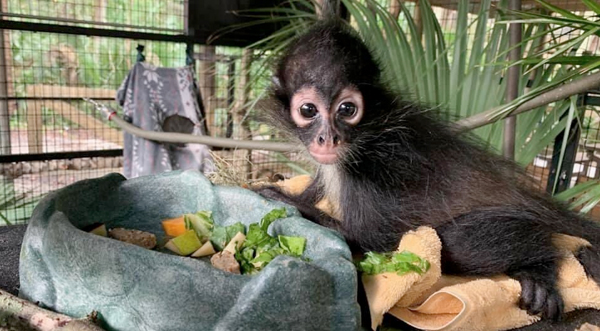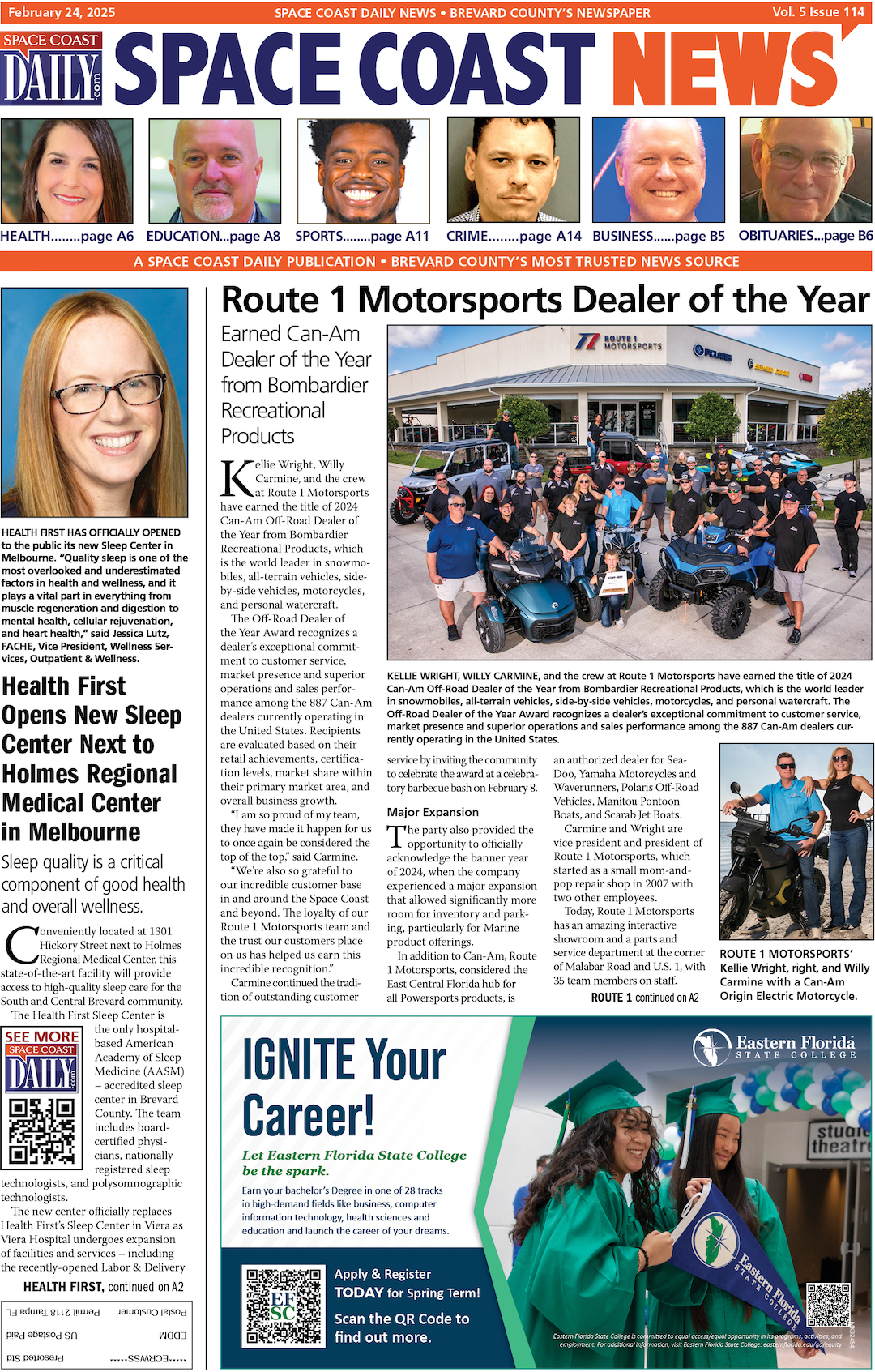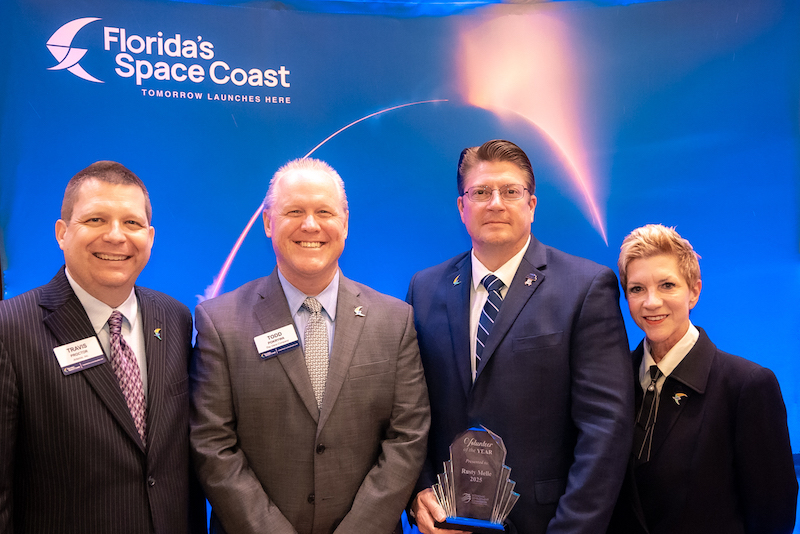WATCH: Baby Monkey Confiscated by Border Patrol Agents Has a New Home at the Brevard Zoo
By Florida Tech // September 20, 2020
Florida Tech aviation aircraft shuttles baby spider monkey from Dallas to brevard

BREVARD COUNTY, FLORIDA – A young spider monkey was found hidden within the center console of a pickup truck by officers with U.S. Customs and Border Protection in Texas, likely destined for the illegal exotic animal trade.
The little guy has now been introduced to his new habitat at Brevard Zoo after arriving in Brevard courtesy of Florida Tech Aviation.
We are told he was clearly tired but ate well.
Best of all, the other monkeys have shown some “affiliation behavior” toward him, which is a good sign that they will be welcoming of him into their troop.
A new facility powered by a partnership between Florida Tech and the Brevard Zoo will allow researchers to continue key voluntary behavioral research.
Brevard Zoo recently completed the construction of the Spider Monkey Complex which includes three separate enclosures connected by sky bridges, which allows the monkeys to break off into subgroups, mimicking how they would live in the wild.
Florida Tech psychology assistant professor Darby Proctor, who is the zoo’s spider monkey researcher, is leading this initiative.
The habitat may be the first in the world to provide such a natural environment and could influence how other facilities provide habitats for monkeys.
In addition to the new habitat, and also in collaboration with Florida Tech, the zoo built a cognitive research center to explore the mind of the spider monkey.
The cognition center is a 36-foot-by-24-foot open-air structure with two enclosures allowing Proctor and her students to engage in voluntary behavioral studies with the spider monkeys. The remaining area of the center contains seating for the public to watch research in action.
“A couple of years ago, I was sitting in a meeting talking about this kind of thing, and I just sort of off-hand mentioned these ideas, and the zoo ran with them, which shows how much they value Florida Tech as a collaborator for promoting the science of working with animals and using science to inform animal welfare,” Proctor said.

Scheduled to open in the summer, the cognition center opened for the monkeys this month. They are now spending time in the center so they can acclimate to the new space and get used to research activities.
“We want them to form a very positive association with the center, so they are excited to come in and do research with us,” Proctor said.
The Spider Monkey Complex and cognitive research center are part of Brevard Zoo’s $4.4 million Rainforest Revealed expansion, the largest in the zoo’s 25-year history. Visitors will experience all levels of a simulated South American rainforest, from the tops of the trees with spider monkeys to under the water with giant river otters.
Through the zoo and university’s multi-year partnership, Proctor was involved early in the planning of the complex. The species’ fission-fusion society, where the group at any given time can split into sub-groups, helped guide the design.
The design was also an attempt to mitigate a problem when housing large groups of spider monkeys: Aggression.
“Other zoos have seen more aggression than they prefer when housing large groups of these monkeys. One of our thoughts was that maybe this was because they couldn’t get away from each other,” Proctor said.
“Just like with us, if we’re fighting with someone, we probably don’t want to see them for a couple of days. So, we’re hoping having this enclosure design will let the monkeys, if they’re fighting, just to be able to go away and have time on their own so they can better manage those social relationships.”
How the monkeys are adapting to the new environment will be among the research Proctor will explore. Already, she said, they appear to be more active and interested in using the space they now have. Based on previous data, Proctor will analyze the primates’ activity patterns in the new habitat and compare it to those in the wild.
ABOVE VIDEO: The Brevard Zoo’s young spider monkey has been introduced to his new habitat the other monkeys have shown some “affiliation behavior” toward him, which is a good sign that they will be welcoming of him into their troop.
In the cognition center, Proctor wants to examine responses to inequity, as well as spider monkey cognition in relation to other primates. While much is known about some species of New World monkeys such as capuchin monkeys, there remains a lot to learn about spider monkeys.
“Spider monkeys have the same complex social structure that humans and chimpanzees have, so my suspicion is that these monkeys are a lot smarter than we had traditionally thought they were,” Proctor said. “My guess is as we look more into the New World monkeys, and not just capuchin monkeys, we’re going to see that these animals have abilities that we hadn’t expected to find.”














